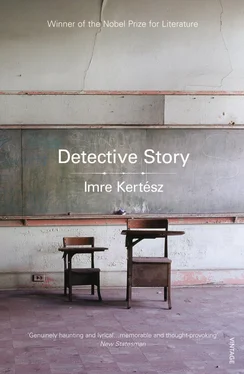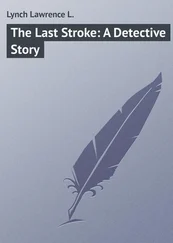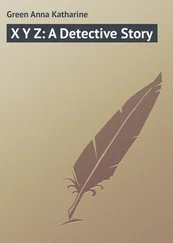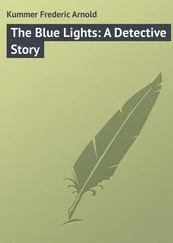And so it begins — much as I have already described earlier.
Salinas proved a tough customer; he really tested our patience to the limit. He cracked only after we brought his son up — literally brought him, as he was unable to walk.
“Well?” asked Diaz.
“Not in front of my son,” Salinas said dully after a while, his face buried in his hands.
“No way,” said Diaz. “Otherwise we’ll smash your bones. We’ll leave the choice up to you.”
Salinas soon thought better of his position.
Don’t ask me to recall precisely who said what, or in which sequence. I don’t recall even what I myself said. There was confusion, and my head ached. From time to time, when a burst of energy seized me, I would lean forward and ask something:
“From whom did Enrique get the envelopes?”
“From me.”
“To whom did Figueras give the envelopes?”
“To me.”
“Are you trying to tell me that you sent letters to yourself by way of Enrique and Figueras?!”
“Yes, that’s how it was.”
“Do you take us for fools?”
“I can’t tell you anything else. That’s what I did.”
“And why did you do it?”
“To head off trouble, so my son would not take a fateful step of some kind.”
“What kind of fateful step?”
“I was afraid that he was going to be recruited into some kind of student movement.”
“So you recruited him instead, into your own secret network, huh?!”
“I have no secret network. No secret organization of any kind. I dreamed the whole thing up.”
“What possible reason could you have had to do that?”
“I’ve already told you: to protect my son.”
“And why did you need the letters to do that?”
“To indulge his flights of fancy and satisfy his craving for action. He wouldn’t listen to sober arguments. I had to create the appearance that he was engaged in secret work.”
“And he wasn’t?”
“No. He’s innocent. He is, and so is Figueras, and so am I. I can prove it.”
“As yet, that’s still a bit far away. What’s the meaning of ENAUSE?”
“It’s an anagram of the word unease . I put the word in each envelope. I’ve used three envelopes—”
“Two!”
“In that case you don’t know about the first one. You were late in putting my son under surveillance. There are still two envelopes—”
“Where?”
“With Quintieros, the public notary. I deposited them with him.”
“Why?”
“To cover my tracks and, should it be necessary, to be in a position to prove my son’s innocence.”
“You were a little late with that.”
“I acted in his interest. He was rushing headlong into disaster. I was guided by my unease; I did it all for him. You have taken unfair advantage of his gullibility. Murderers! Bastards!”
A pause ensued, after which we returned to the envelopes.
“I placed an identical piece of paper in each envelope. I numbered them serially, and on each of them I printed ENAUSE. I printed all of them on my own typewriter so the lettering would be identifiable. You’ve overstepped your authority, and you’ll all be answerable for that! The envelopes that are with Quintieros …”
And so it went on. Should I say I was surprised by what we learned from Salinas? That evening nothing surprised me any longer. Diaz, though, sprang to his feet as if he had been stung by a wasp. Now Diaz was generally a placid man. I had never seen him as nervous as he was then.
He leaned forward into Salinas’s face:
“Do you take us for idiots?! Just who do you think we are? Ass-scratching lawyers who are going to tip their hats to your public notary? Do you suppose we haven’t heard about double-bluffing? Do you suppose we are incapable of imagining that you are using one set of correspondence to conceal the other? Do you suppose we don’t know how many ways there are to decipher a code? … Don’t imagine you’re going to break free from our clutches! Not until we have laid bare the whole truth!”
At which point it all started afresh, from the beginning.
Don’t expect to learn what else happened that evening. It was no longer an interrogation but a poker game. I was still a new boy, as I have said; only then had I begun to see where I was and what I had taken on. I knew, of course, that a different yardstick applied in the Corps — but I believed there was at least a yardstick. Well, there wasn’t: don’t expect me to tell you what happened that evening.
We hauled in the public notary. We hauled him in because he had failed in his duty as a citizen to report a suspicious act; we hauled him in because that was what Diaz wanted. We surprised him at the dinner table, just as he was celebrating something or other. He was a self-assured fellow, the public notary; he protested and demanded a lawyer.
Later on, though, he just sat between us in his ripped shirt, his pomaded cheeks sunken, his fleshy lower lip drooping limply.
“I don’t understand you, gentlemen,” he mumbled. “I don’t understand. What do you want from me? After all, the state places its trust in me!”
“That’s as may be.” Diaz nodded, almost like an elementary schoolteacher. “Only we don’t place our trust in the state.”
The notary just goggled at him with his tiny watery eyes. “I don’t understand. I don’t understand. In what do you place your trust then?”
“In destiny. Right now, though, we have taken on the role of destiny: so in ourselves.” Diaz, one buttock on the desk, smiled his inimitable smile.
For me this was just like a message that Diaz had sent via the notary. I finally grasped his logic, or at least I believe I grasped it. I grasped that we had now cast away everything that bound us to the laws of man; I grasped that we could no longer place our trust in anyone except ourselves. Oh, and in destiny, in that insatiable, greedy, and eternally hungry mechanism. Were we still spinning it, or was it spinning us? Now it all amounts to the same thing. You think you are being very clever in riding events out, as I say, and then you find that all you want to know is where the hell they are galloping off to with you.
…
The interrogations went on for a while longer. We summoned witnesses, took statements, followed procedure. In the course of that procedure we drew the net of logic ever tighter. The Salinas file grew thicker. Then we set it aside. At the time, with unfavorable portents multiplying, we had a lot to do.
The tape-recorder spools spun on, though, automatically, inexorably, constantly in their slots. Recording their words, the sounds of their prison life that were no longer of any interest to anyone.
I listened to them many times, however. I’m sorry not to have them with me; I could make good use of them here, as all I have is Enrique’s diary.
Still, they live on in my memory, they live on and keep on spinning there. The tape is short now, just a tiny fraction of what it was originally, but memory is like that. It overlays voices, cuts out what is inessential, replenishes their fading sense, and implacably replays, over and over again, the bits that one might be happiest to delete.
Then there are the silences between the words. I care for those silences least of all. Because the silences are never complete. They are full of murmurs, characteristic flutters, sighs, groans. The real sounds of an imprisoned man. How many shades of sigh exist, for example? Only these spools know. Consider me mad, but as I say: I find these silences the most difficult to bear.
“Do you hate me, Enrique?”
“Of course I hate you, Dad. Do you want some water? I’ve still got a bit … Don’t drink it all, though.”
Gulping, long, heavy gulping. Silence. A creaking, the creaking of a wire mattress. Even in imprisonment a man will seek to make himself comfortable. I have become sensitive to that nowadays, highly sensitive. Groans.
Читать дальше












